Throughout history, stories of bravery and determination shine as examples of the human spirit. One such story is of Shoichi Yokoi, a Japanese sergeant in the Imperial Japanese Army. Yokoi refused to surrender for 28 years after the conclusion of World War II. His strong determination, fueled by belief, shows how resilient people can be.
Early Life and War Days
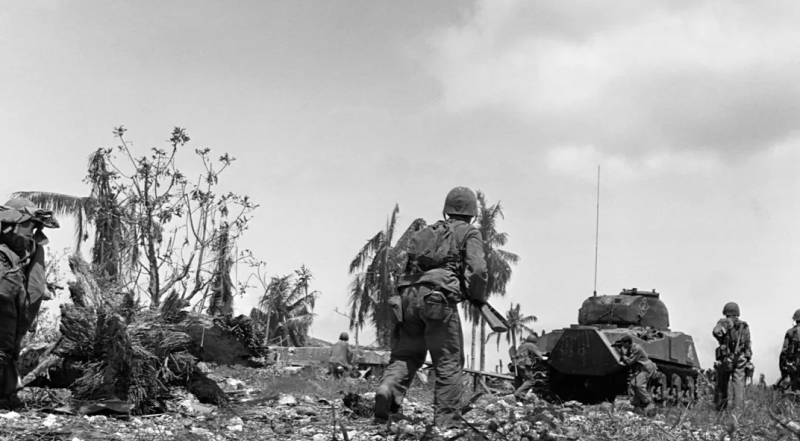
Born in Aichi Prefecture, Japan, in 1915, Yokoi was the youngest of four siblings. His upbringing on the farm nurtured a strong work ethic, and his inclination toward academics and sports showcased his versatile talents.
When war clouds gathered in 1941, Yokoi’s life took a fateful turn as he was drafted into the Japanese army. He was stationed in Guam by 1943, playing the role of an anti-aircraft unit.
Guam saw fierce battles between Japanese forces and US troops when World War II broke out. In 1945, when Japan’s defeat became inevitable, American troops invaded Guam. Faced with impending defeat, Yokoi and his two teammates made a choice that reshaped their fates: fleeing into the jungle to avoid capture.
A Life in Hiding: Shoichi Yokoi’s Story of Survival and Redemption Jungle)
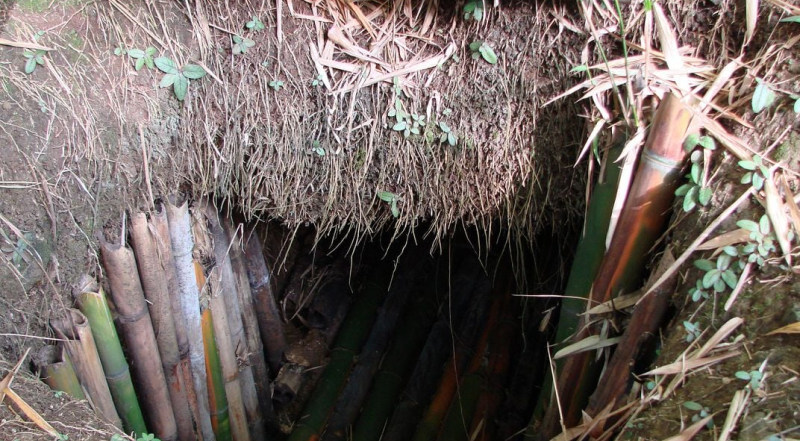
On August 15, 1945, Emperor Hirohito announced Japan’s unconditional surrender, marking the end of World War II. However, Yokoi and his companions were kept from reliable information sources, believing that surrender was a trap devised by the Americans to trick them into surrendering.
For nearly three decades, Yokoi and his comrades lived in the wilderness of Guam. They skillfully build shelters, cultivate crops, and hunt wild animals for food. According to the Washington Post, Yokoi utilized his tailoring abilities to craft clothing from tree bark and tracked time by observing the moon’s phases. The radio they managed to build could not receive signals from Japan after 1945.
Yokoi writes in his book:
“I lived in constant fear of being discovered by the enemy. I often heard noises in the jungle, and I had to fight the urge to run.”
As the years pass into decades, Yokoi’s two comrades leave the jungle to surrender. Yokoi was the last of the three to surrender.
The Long Road Back: Shoichi Yokoi’s Return to Japan After 28 Years
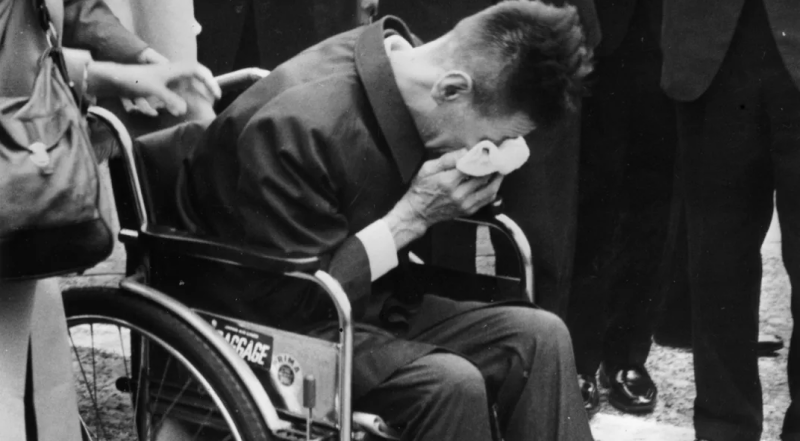
January 24, 1972, marked a turning point in Yokoi’s life. Local fishermen Manuel De Gracia and Jesus Duenas stumbled across Yokoi’s camp in the thicket. At first, Yokoi’s distrust of these strangers was evident, but gradually trust was established. The fishermen, realizing the seriousness of the situation, took Yokoi to the authorities.
The event was also reported in the local news media. The headline in the Guam Daily News on January 25, 1972, read “Japanese Soldier Found Alive in Jungle.” The article described how the fishermen discovered Yokoi and quoted him as saying he was “happy to be alive.”
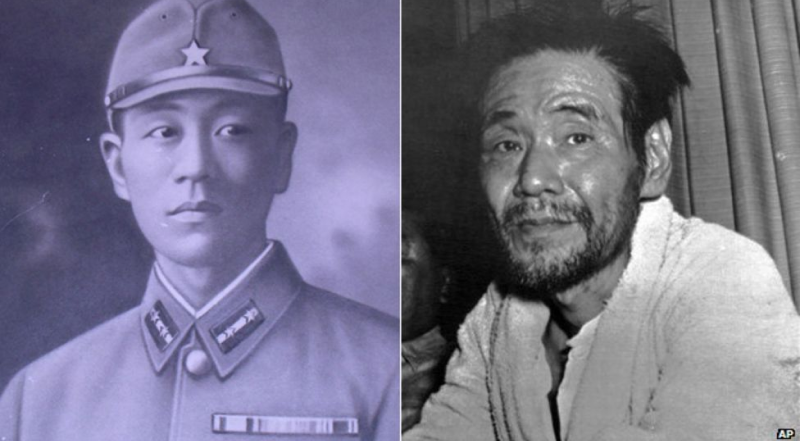
When Yokoi returned, Japan was filled with emotion and celebration. According to the book The Last Japanese Holdouts: A Hidden History of World War II by Yuki Tanaka, Shoichi Yokoi’s first words after being discovered by the fishermen were:
“It is with much embarrassment that I have returned alive.”
Yokoi felt humiliated by his inability to submit to the enemy for 28 years. He thought he had failed his country and his family. He was relieved, though, to be alive and to be able to return home.
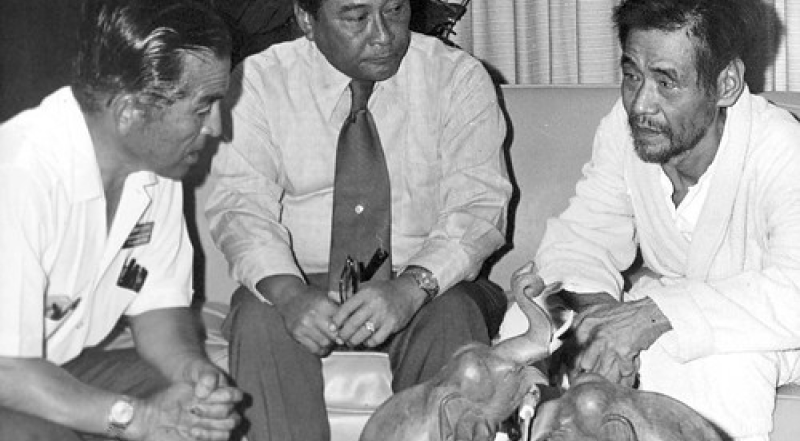
Yokoi’s first comments are a stark reminder of the psychological toll that conflict can take. He’d been struggling for so long that he’d lost touch with time and reality. He was diagnosed with post-traumatic stress disorder (PTSD) and survivor’s guilt.
Dr. Masaaki Kaku, a psychologist, saw Yokoi’s case as a prime example of war’s psychological effects. Kaku believed Yokoi was brainwashed by the military and lost his ability to think independently due to long jungle isolation.
Yokoi’s Legacy
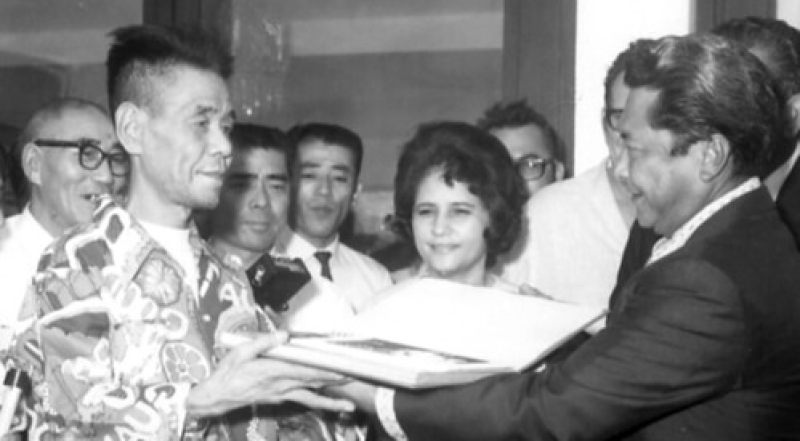
Shoichi Yokoi’s return marked a new phase, trying to fit into a rapidly changing world. He felt nostalgic for the past and critiqued modern innovations. Despite the challenges, he entered an arranged marriage in 1972, ran for Parliament in 1974, and shared his story through a bestselling book and lectures.
However, Yokoi never felt comfortable in modern society. He revisited Guam multiple times before passing away in 1997, highlighting his enduring connection with the place that defined his unique journey.
